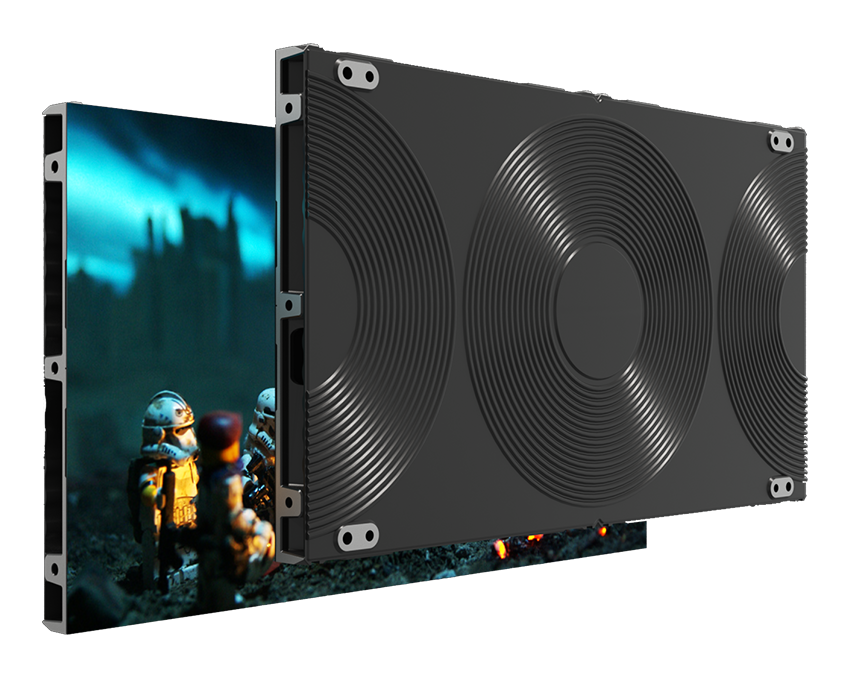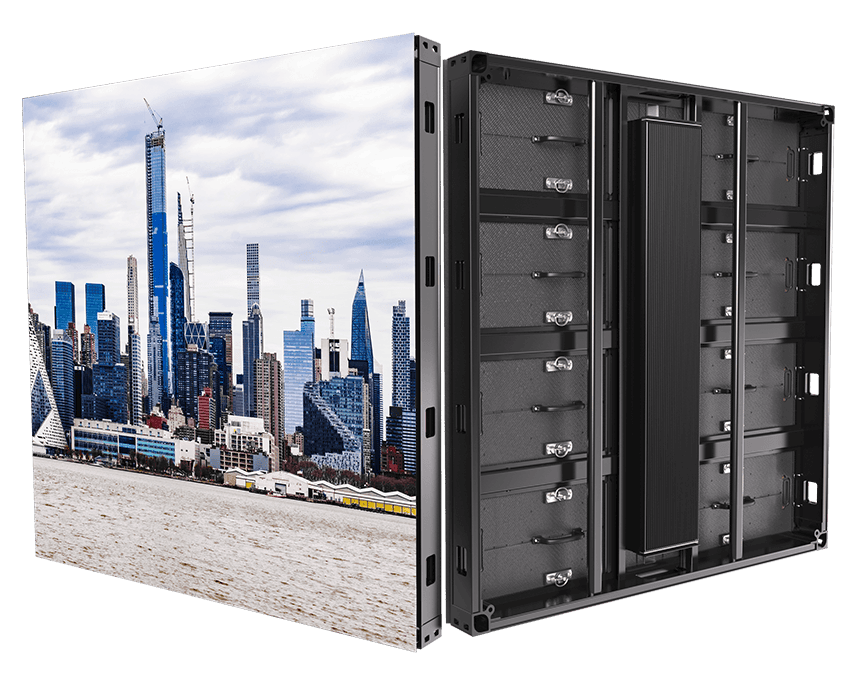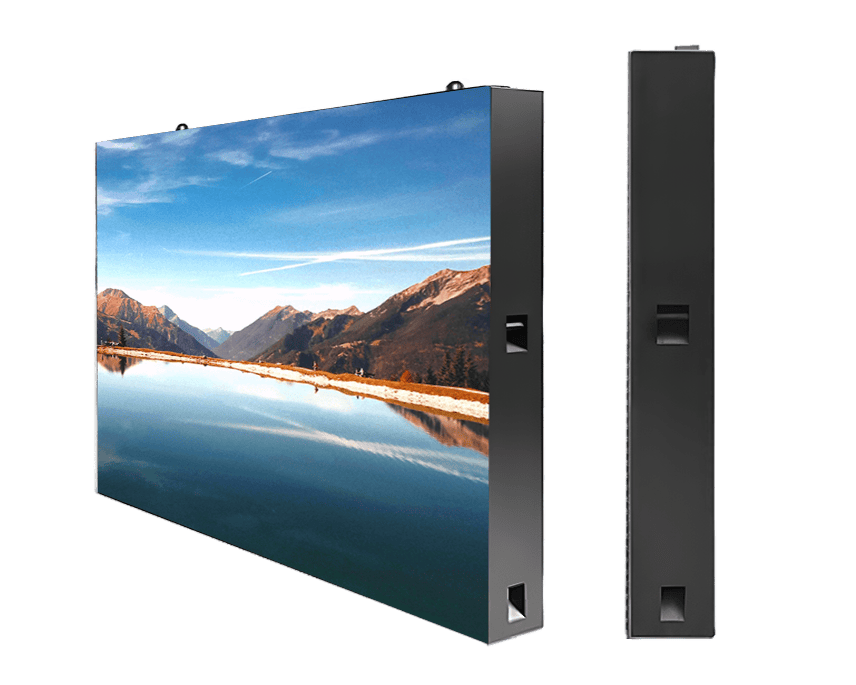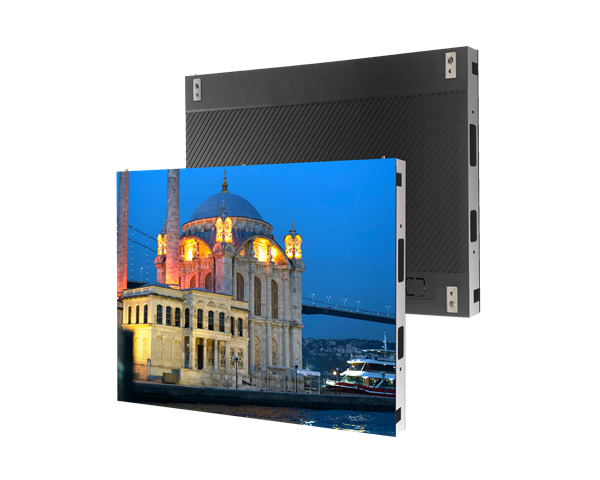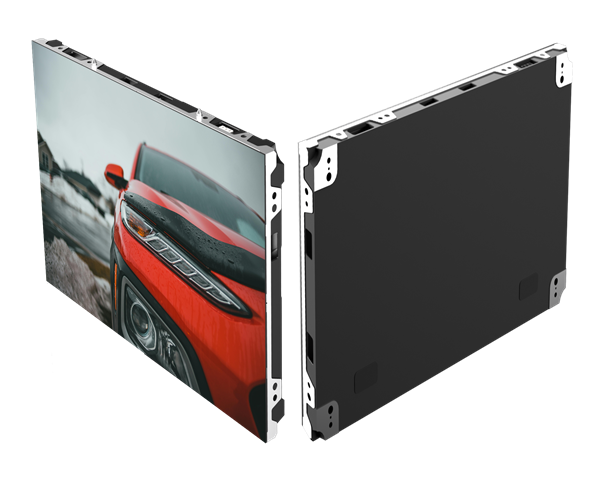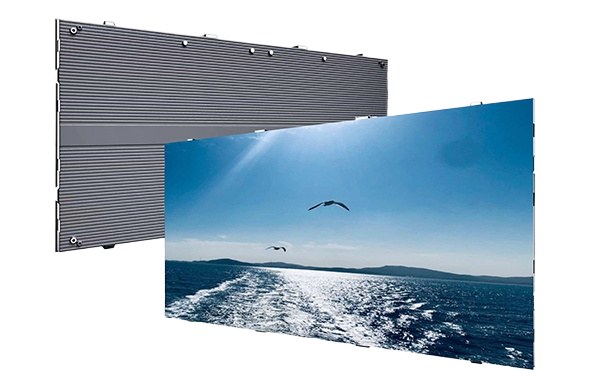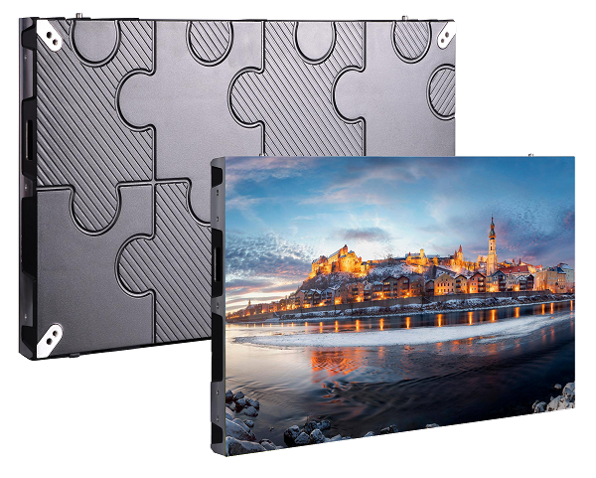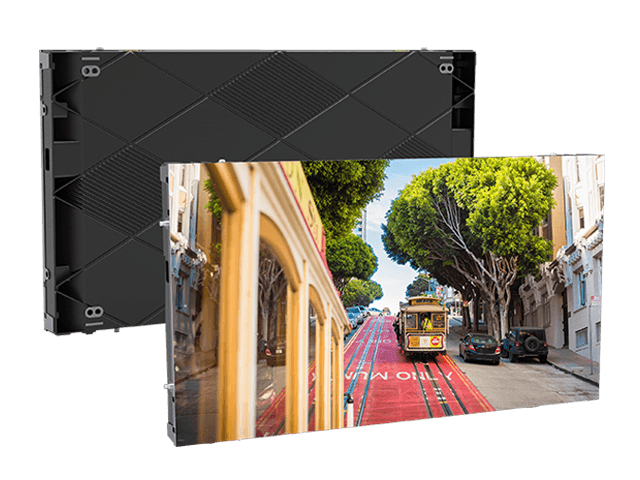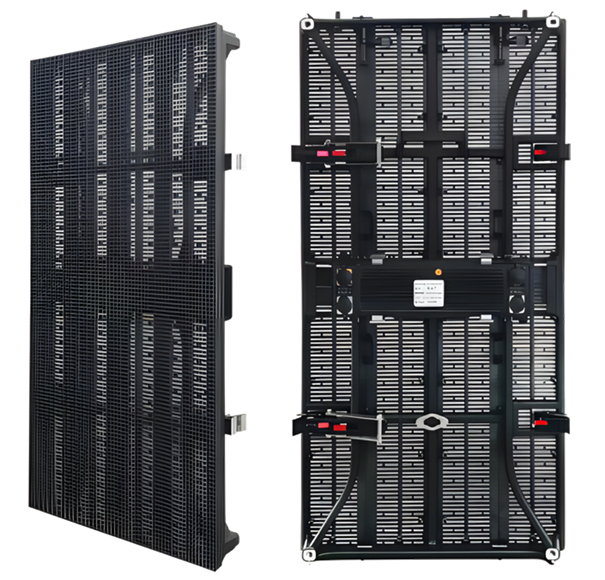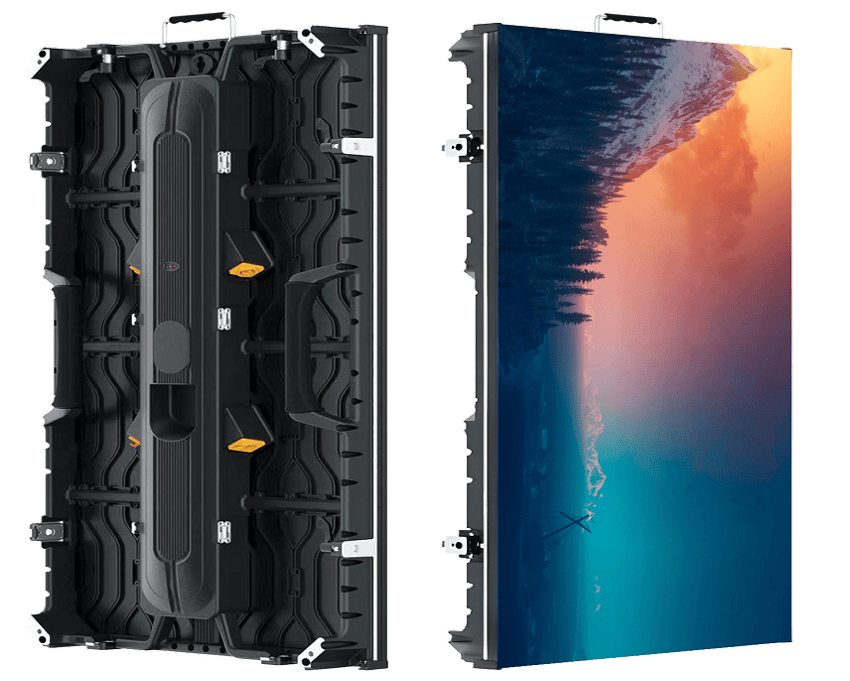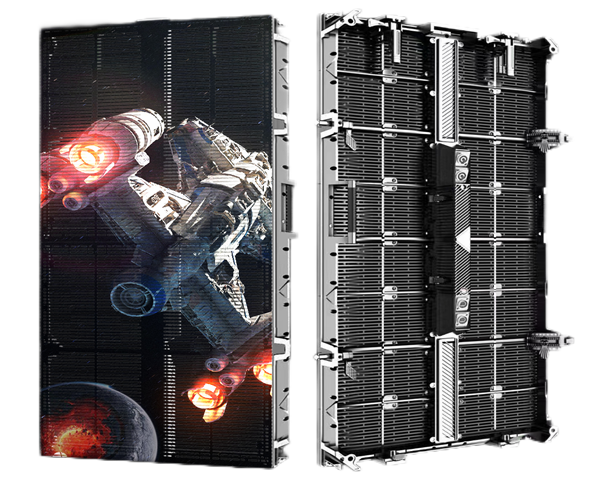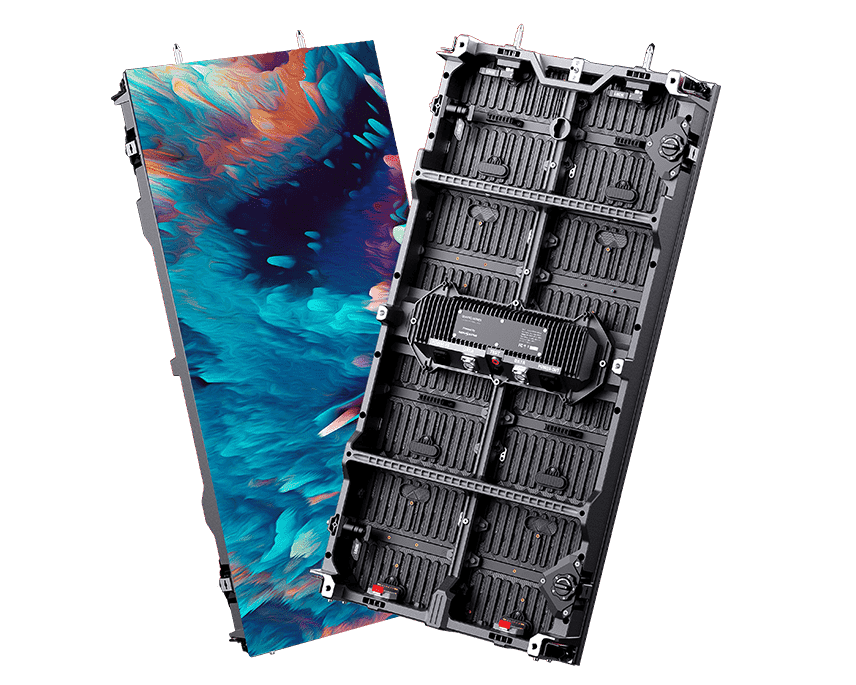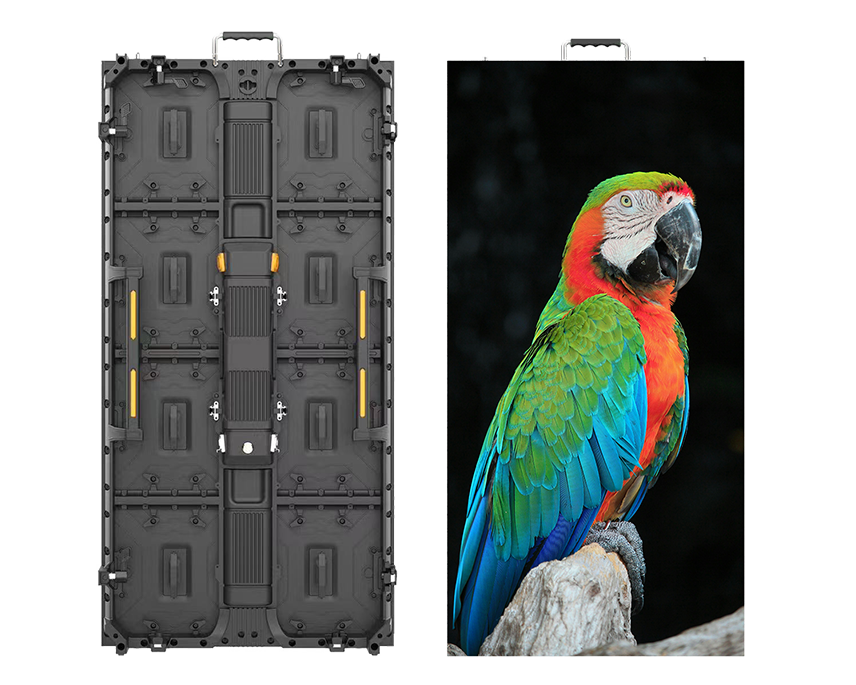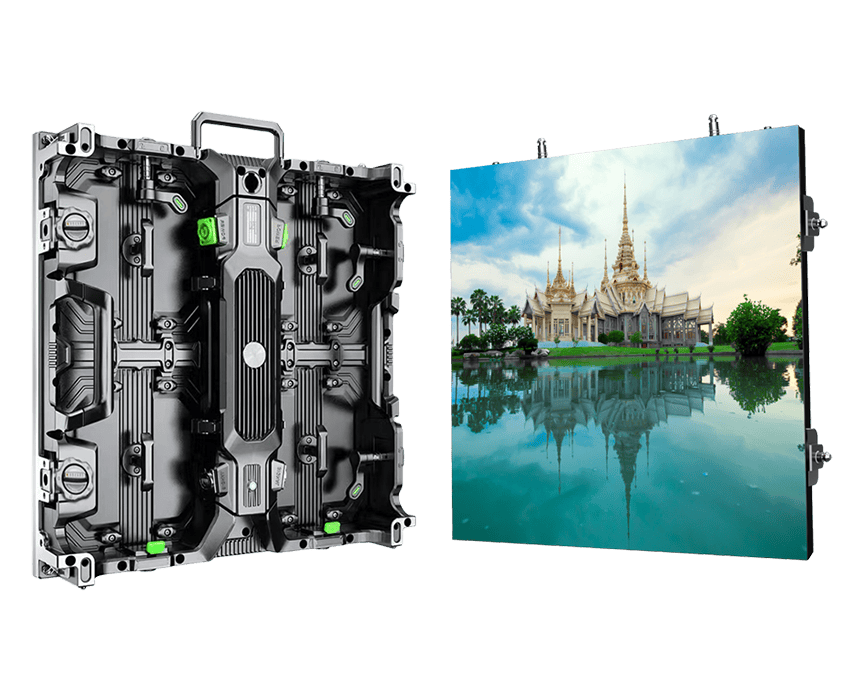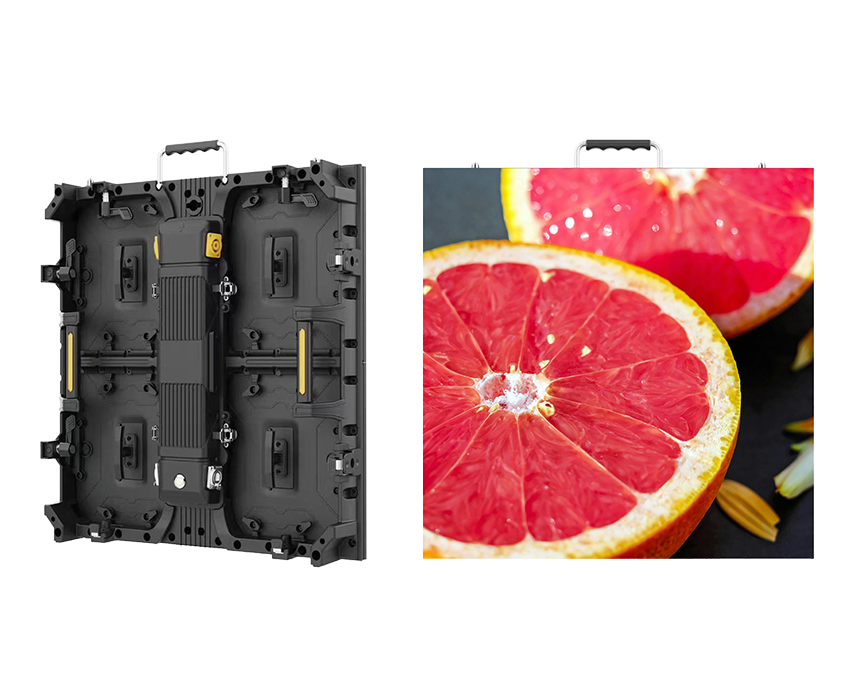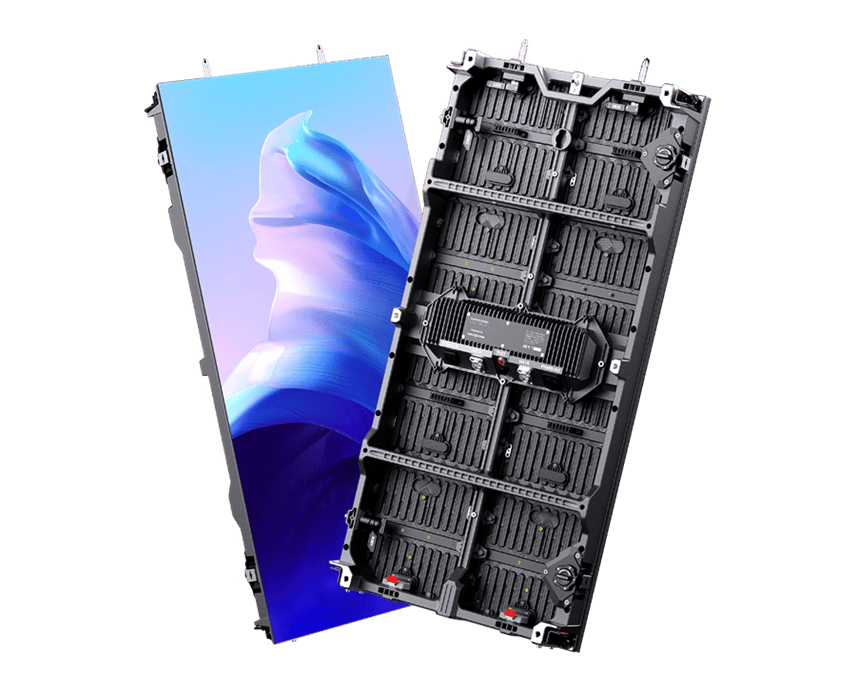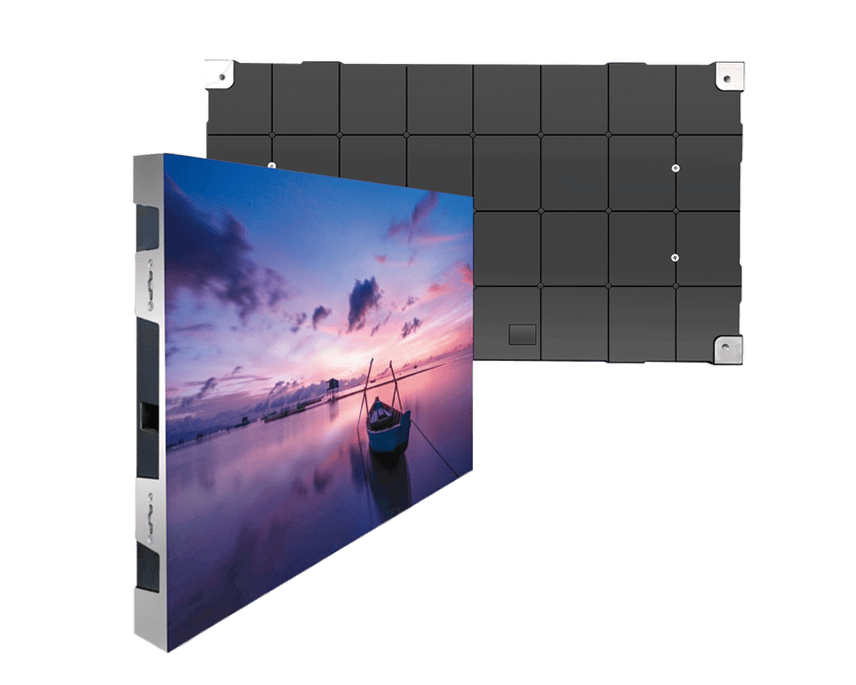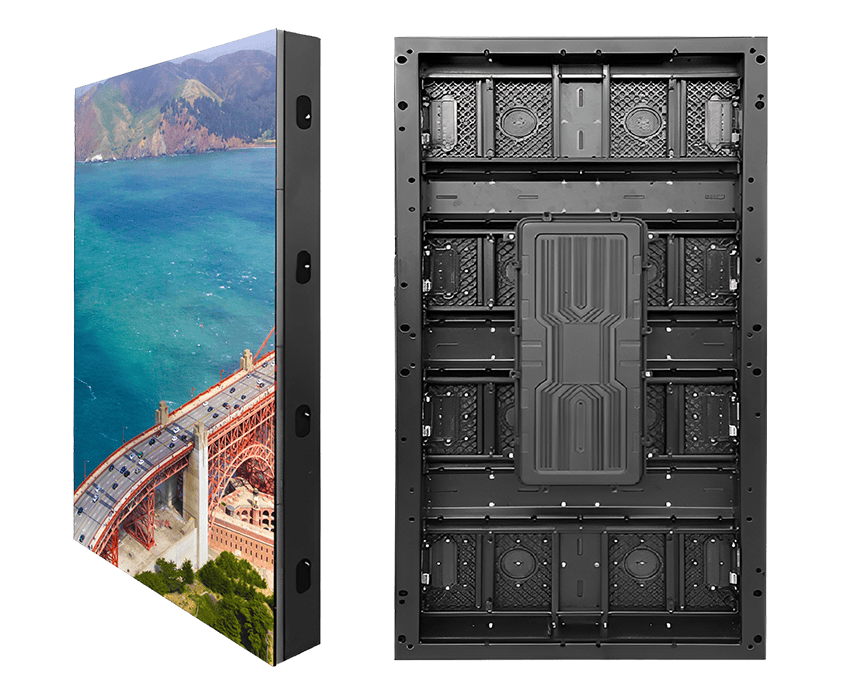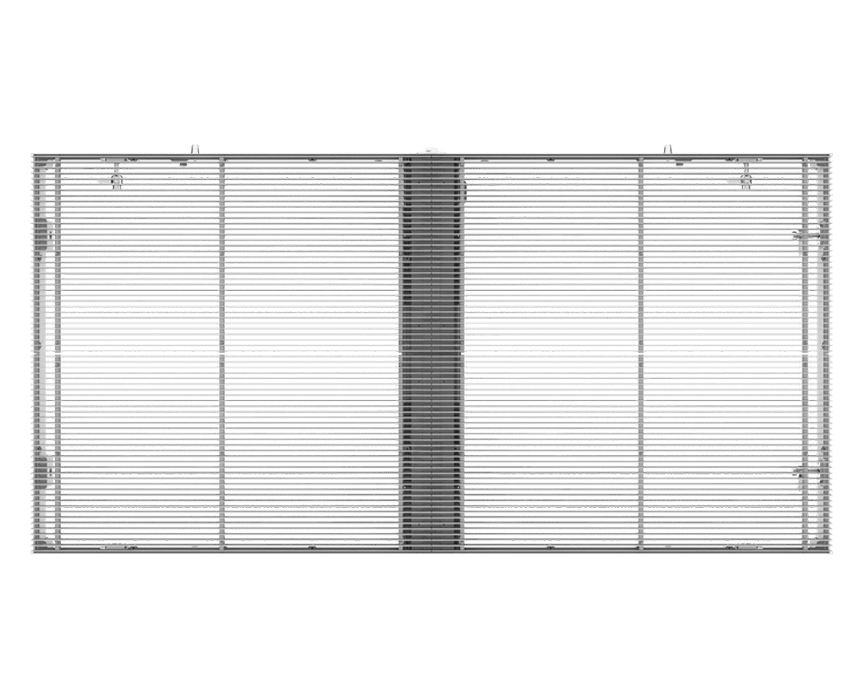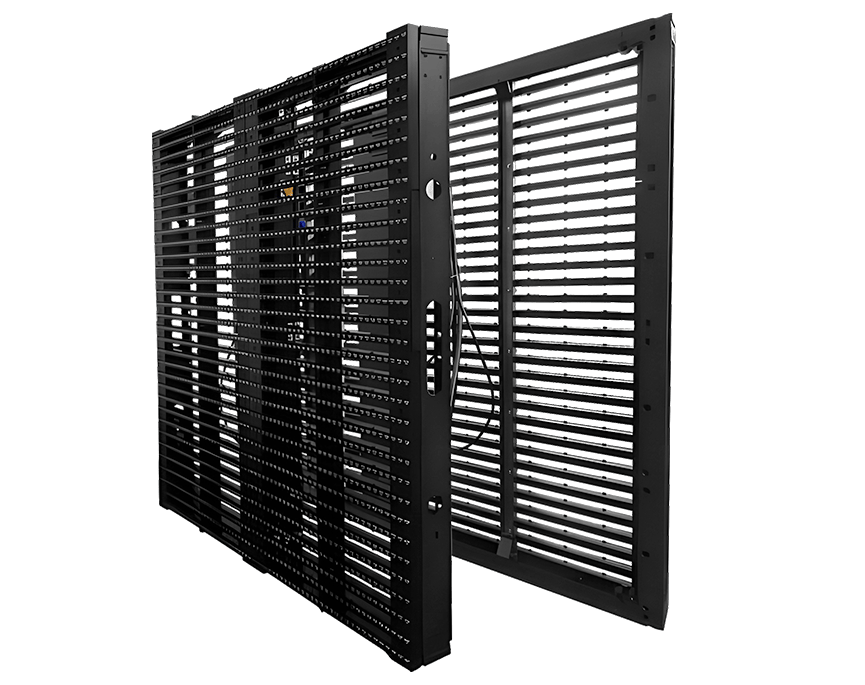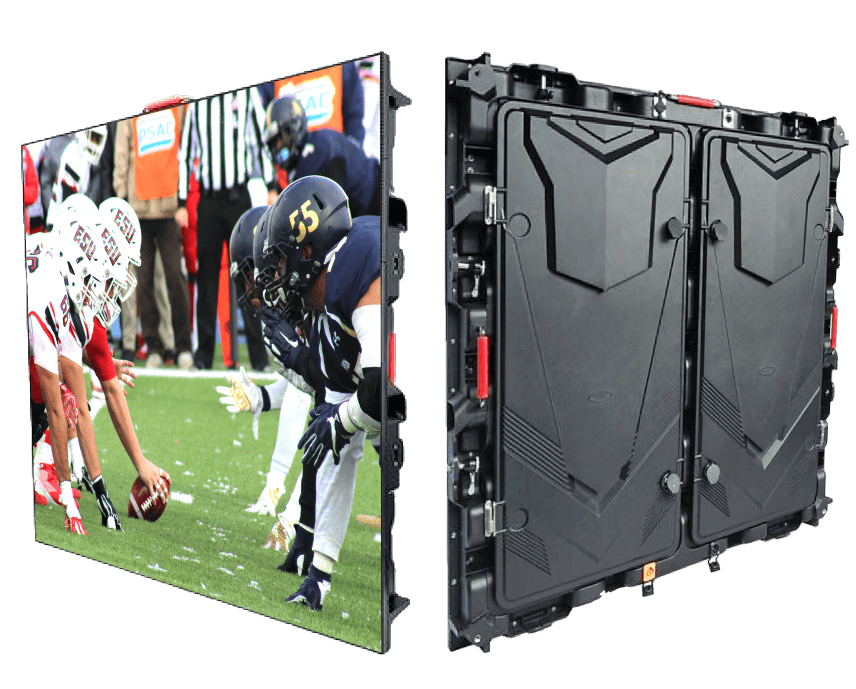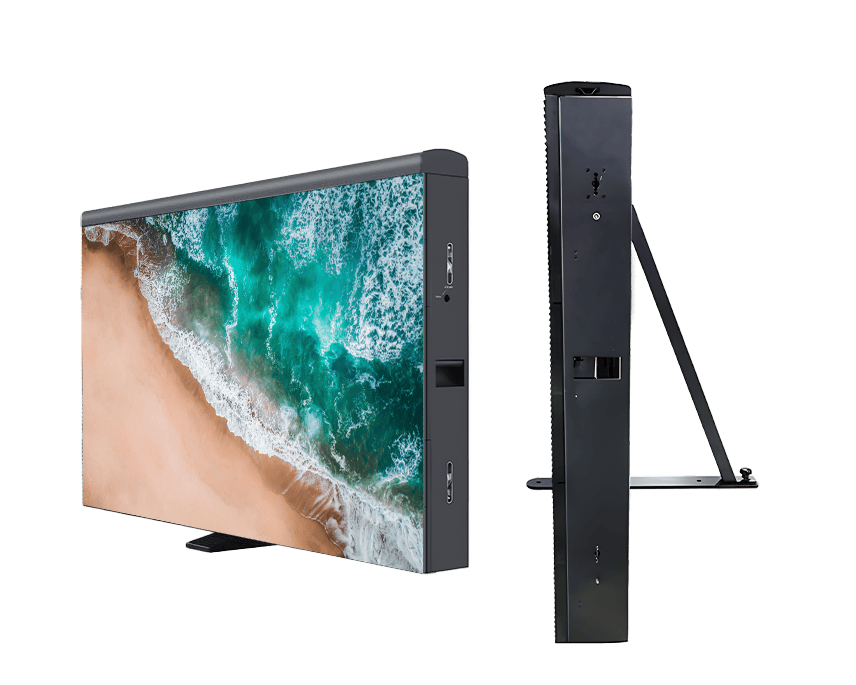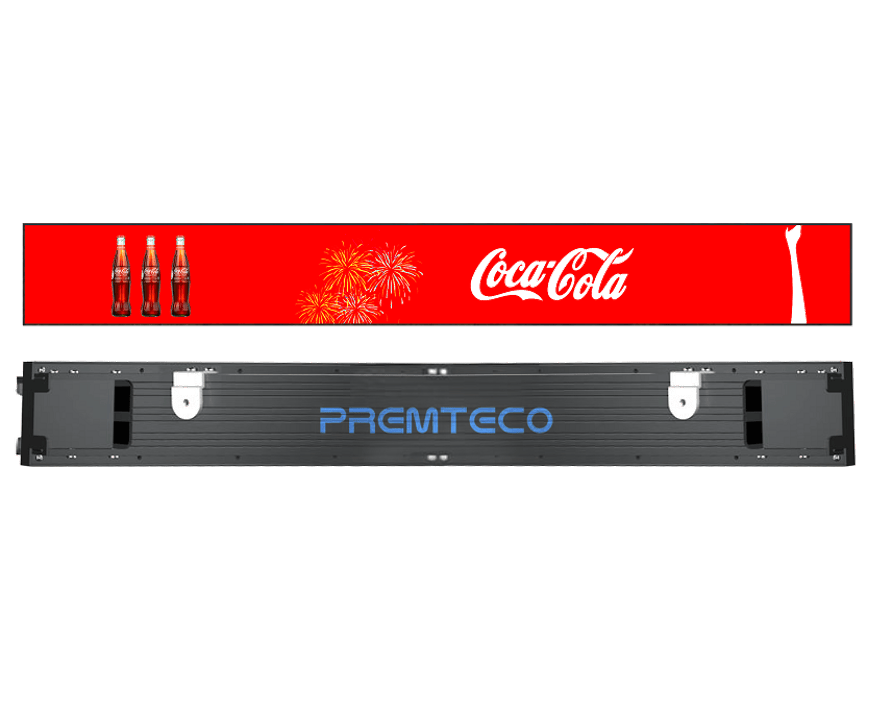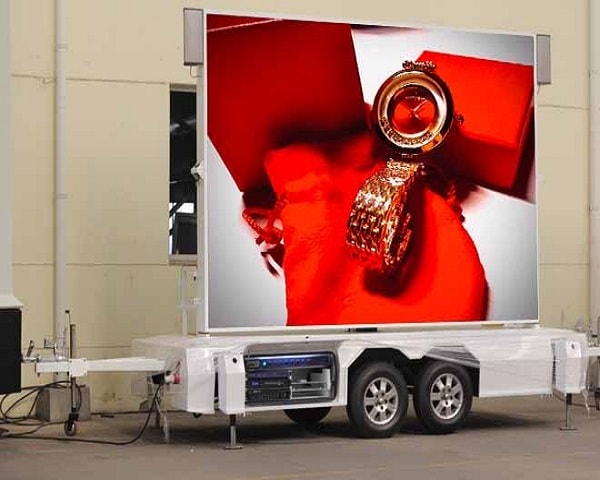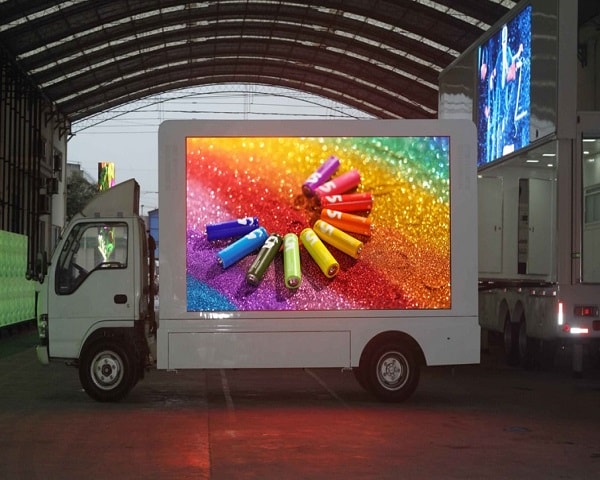In the fast-paced development of modern cities, effective communication has become more critical than ever. Whether it's about guiding traffic, promoting local businesses, or broadcasting emergency alerts, cities need reliable and visible platforms to engage their citizens. Traditional billboards and static signs, while still relevant, are increasingly being replaced by more dynamic, efficient, and versatile technologies. Among these, lamppost LED displays have emerged as a standout solution. By merging digital display technology with existing infrastructure, they not only maximize space efficiency but also deliver high-impact messaging exactly where people are most likely to see it — right along the streets they travel every day.
Lamppost LED Display Introduction
A lamppost LED display is exactly what its name suggests: a digital LED screen mounted on a street lamp or pole. Yet, its simplicity in definition belies its significant role in today's smart city designs. These displays are typically lightweight, weather-resistant, and highly customizable in size and resolution. Moreover, they allow municipalities, advertisers, and service providers to communicate real-time information to the public in a vibrant and engaging way.
Lamppost LED displays serve multiple purposes. For instance, they can display real-time traffic information to drivers, weather updates to pedestrians, promotional messages for local events, and safety instructions during emergencies. Integrated into urban environments without the need for new structures, these displays are an efficient way to digitize streetscapes while keeping the environment visually appealing and organized.
In smart city initiatives, lamppost LED displays are often networked together. This connectivity enables centralized control, seamless content updates, and even integration with sensors and data platforms. Thus, they not only display static messages but can react dynamically to changes in the environment, traffic conditions, or public needs.

Features of Lamppost LED Display
Lamppost LED displays come packed with features that make them highly adaptable to urban challenges. Let's explore some of their key features in detail:
High Brightness and Visibility
Unlike traditional posters or simple electronic signs, lamppost LED displays are designed to be visible under direct sunlight, at night, and during bad weather. High brightness ensures that the content remains vivid and legible, regardless of external conditions.
Weatherproof and Durable Design
Another standout feature is their resilience. These displays are built with high IP ratings (usually IP65 or higher), meaning they are protected against dust, rain, humidity, and even extreme temperatures. Whether it's a scorching summer day or a freezing winter night, lamppost LED displays continue to perform reliably.
Remote Control and Real-Time Updates
In today's connected world, managing content remotely is a necessity. Lamppost LED displays can be operated through cloud-based systems that allow administrators to update, schedule, and monitor content from a central location. This capability drastically reduces labor costs and ensures that messages remain timely and relevant.
Energy-Efficient Technology
Modern lamppost displays use advanced LED technology that consumes significantly less energy compared to older display methods. Moreover, many systems are designed to adjust brightness automatically based on ambient light, further optimizing power usage.
Flexible Design Options
Cities and businesses can choose from various display sizes, shapes, pixel pitches, and installation methods. Whether it's a sleek vertical screen or a slightly curved wraparound design, lamppost LED displays can be customized to fit the aesthetics and technical needs of different urban spaces.
Advantages of Lamppost LED Display
Choosing lamppost LED displays over other communication methods brings several distinct advantages, not only for cities but also for advertisers and residents.
Enhances Urban Aesthetics
First and foremost, lamppost displays blend naturally into the streetscape. Rather than cluttering the city with additional billboards and signs, they make smart use of existing structures. This helps cities maintain a clean, modern look while introducing digital functionality.

Increases Public Safety
In times of emergencies, lamppost displays become crucial tools. Instant alerts about accidents, weather warnings, or security threats can be broadcast citywide in a matter of seconds. Unlike traditional warning systems that rely on radio or apps, these displays are in the direct line of sight of pedestrians and drivers alike.
Boosts Advertising Effectiveness
With their strategic placement along busy streets and intersections, lamppost LED displays offer excellent exposure for advertisers. Businesses can tailor ads based on time of day, weather, or even nearby events, ensuring maximum relevance and impact. Moreover, the vibrant displays naturally attract attention, leading to higher engagement rates compared to static billboards.
Supports Smart City Goals
Integrating lamppost LED displays with sensors, cameras, and data networks enhances their functionality even further. For example, displays can show air quality readings, traffic congestion levels, or even parking space availability. This real-time information helps residents make better decisions and fosters a smarter, more responsive urban environment.
Revenue Generation Opportunities
Many municipalities monetize their lamppost displays by selling advertising space. This revenue can be reinvested into urban development projects, public services, or further smart city enhancements, creating a sustainable loop of growth and improvement.
Why Choose Lamppost LED Displays
When considering modern communication solutions, lamppost LED displays clearly stand out. But why exactly should cities, businesses, and organizations choose them over other options? Let's break it down.
Superior Visibility
Because they are mounted at eye level or slightly above, lamppost LED displays are naturally positioned for maximum visibility. Unlike rooftop billboards or underground signage, lamppost displays are seen by pedestrians, cyclists, and drivers alike.
Cost-Effectiveness Over Time
Although the initial investment can be substantial, the long-term savings are significant. LED technology is energy-efficient and long-lasting, with minimal maintenance costs. Plus, the ability to update content remotely reduces the need for manual labor, saving thousands annually.
Scalability and Flexibility
Starting small and expanding later is easy with lamppost LED networks. Cities can begin by equipping a few major avenues and gradually roll out more displays across neighborhoods. The flexibility in content scheduling and customization also allows for diverse uses, from civic messages to commercial promotions.
Proven Results
Many cities worldwide, from New York to Singapore, have already adopted lamppost LED displays. Reports show increased public engagement, faster information dissemination, and greater advertiser interest compared to traditional media channels.
Environmental Responsibility
LED displays are far greener than traditional paper billboards or backlit panels. Not only do they consume less energy, but they also eliminate waste associated with printing and disposing of paper-based ads.

How to Install Lamppost LED Displays
Installing a lamppost LED display requires careful planning and execution. Here's a step-by-step breakdown:
1.Site Survey and Feasibility Study
Before installation, it's crucial to assess the location. Factors like lamppost height, foundation stability, nearby power sources, and line of sight for viewers must be evaluated.
2.Choosing the Right Display
Not all lampposts are created equal, and neither are displays. Selecting the appropriate screen size, resolution, and brightness level based on the surrounding environment ensures maximum effectiveness and longevity.
3.Hardware and Mounting Setup
Professional technicians mount the LED screen onto the lamppost using specialized brackets. Proper securing is vital to withstand wind loads, vibrations, and everyday wear and tear.
4.Electrical and Network Connections
Next, the display is wired for power and connected to a network system, either via Wi-Fi, 4G/5G, or direct cable links. Redundant power supplies and surge protection are often installed to ensure uninterrupted operation.
5.Content Management System Setup
A cloud-based or centralized content management platform is configured to allow remote updates. Operators can schedule different content for different times or events, maximizing the display's effectiveness.
6.Testing and Calibration
Before going live, the display undergoes thorough testing. Brightness, color calibration, and connection stability are checked to ensure optimal performance.
7.Ongoing Maintenance and Support
Even though LED displays are low-maintenance, regular inspections and software updates are necessary. Cleaning the screen, checking the brackets, and updating security protocols ensure that the display remains safe and functional.
Conclusion
Lamppost LED displays are reshaping how cities communicate, offering a perfect blend of visibility, durability, and smart integration. As urban environments continue to advance, the need for reliable, high-performance display solutions becomes even more critical. Companies like PTCLED, committed to innovation and quality, are helping cities transform their streetscapes into smarter, more connected spaces. Choosing the right lamppost LED display is not just about technology — it's about building a better, more vibrant future for communities everywhere.
For more information about Lamppost LED Displays and how they can transform your urban spaces, feel free to contact us:
Email: info@ptcled.com | Website: www.ptcled.com













